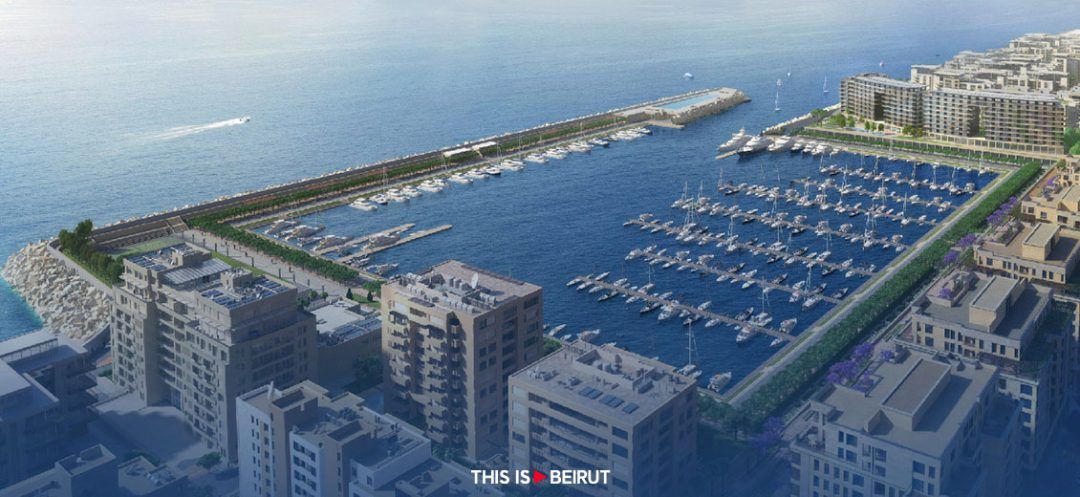
For the 2024 budget, as with any controversy over public finances, one notices that the debate is limited to more or less taxes to reward more or less civil servants: the active, the inactive, the moderate present, the absent, the invisible, the non-existent, without distinction. No idea about other possible revenues or less wasteful expenses.
A one-dimensional thought, a narrow-minded one, let’s say. The opposite would be surprising, knowing the lack of imagination, dexterity, and IQ that characterize our leaders and are conditions for their accession to power.
On the other hand, enlightened economists talk about alternatives, the essence of which can be summed up by an assertion: “The Lebanese state is not bankrupt, it is even potentially rich.” And it is this “potential” that interests us here, and of which we will provide just a few clues, among dozens of others.
The Port of Beirut
Apart from being mismanaged and partly monopolized by Hezbollah and its smuggling agents, it has areas that are large or unnecessarily occupied by hundreds of containers that pile up because the relevant administrations are incompetent. And here we are on lands worth fortunes, enough to create a mini defense-type district. On a smaller scale, other ports can also be better exploited.
The Airport
Empty space as far as the eye can see, which is not seen in any other airport while 8 million passengers pass through it in a normal year, with an average and above average purchasing power. Underutilization that no one thinks to rectify. Not to mention two other abandoned airports.
Services
Electricity, telecoms, water, and others that accumulate or have accumulated losses, sometimes massively. And everyone accepts it as a fate, with infinite joy when we achieve a semblance of balance. Whereas in all liberal economy countries, these services, well managed by the private sector, make profits.
The Casino
A bill, blocked for years in Parliament, was supposed to allow the Casino du Liban to open branches or mini-gaming rooms in the regions. Beirut, Broummana, Aley, Batroun, Zahleh, Jezzine, and the airport were then proposed. By passing a single already-prepared and submitted law, we can quintuple the casino’s revenues and, in the process, increase those of the airport, all the actors working there, and tourism in different regions.
The Tripoli Fairground
Occasionally, we boast that it was designed by Oscar Niemeyer, but we have no qualms about leaving 700,000 square meters in the middle of the city, totally abandoned. There is neither state exploitation nor permission for private exploitation.
Landfills
Those of the Joseph Khoury marina and elsewhere. On this land won from the sea in Dbayeh, the state is entitled to 330,000 m2, which it has never exploited. In 2019, it was worth 1 billion dollars. Whereas the equivalent part, belonging to the Khoury family, is already a city, operated in partnership with the Emirati Majid al-Futtaim.
By extension, we can multiply landfill and artificial island projects on the coast in places that have no other interest, with at least half of the areas returning to the state. Dubai has made it one of the most flourishing industries. "Environmentalists,” who might cry scandal by pointing out the risks to the jarbidis species will have to adapt to more realism.
Public Lands
It is often said that most of the lands belonging to the state, representing nearly 20% of the territory, are located in unprofitable areas. That said, a serious inventory has never been drawn up. And this does not prevent any land from being entrusted for exploitation to a private operator for 5, 10, or 20 years, depending on whether it is agricultural or more or less urban. No land is worthless.
The Signature
The state’s signature is worth gold. Because the authorities can issue all kinds of permits worth fortunes — a cellular network, a permit for the installation and operation of fiber optics, a permit for another airline, an exploitation coefficient in an abandoned region or on the coast (of the sea and rivers), a broadcasting or communication permit — the fields are limitless. It is recalled that at the time, the simple “Al-Murr floor” brought in tens of millions of dollars.
We can multiply the examples infinitely. And, faced with skeptics, we can guarantee transparency by organizing public auctions each time under the supervision of an international audit, in addition to our national Jean Ellieh.
But the question remains: what to do with this money? Fake associations and some populists of the worst kind of politicians do not want to hear about reimbursing depositors with public money, as if they were pariahs. So be it. But what about the state’s debts? Is it forbidden to repay them as well? Or refueling the bankrupt social health and education services? Or investment in crumbling infrastructure?
The state, as it stands now, is in a state of advanced coma. And its leaders, steeped in mediocrity, have accommodated themselves well. Their greatest wish, in fact, the wish of every corrupt governor, is for the people to also accommodate themselves and enter the same coma.
Read more




Comments